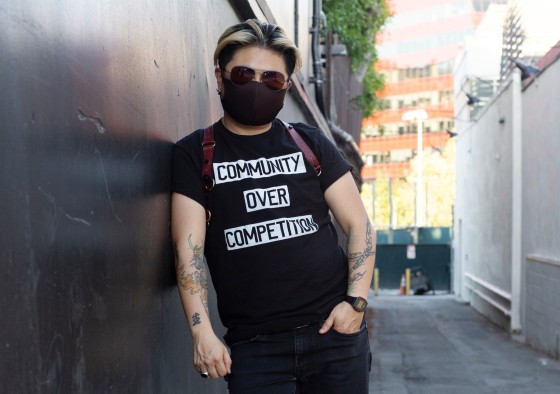LGBTQ small business owners are confident about their post-pandemic recovery, but more than 78 percent don’t have a succession plan in place, according to a new CNBC + Acorns and NGLCC Small Business Owner Financial Health Survey.
Since many small businesses are handed down generation to generation, that’s really frightening, said Justin Nelson, co-founder of the National LGBT Chamber of Commerce, or NGLCC.
“We have a number of same-sex couples that may or may not have children, so there may not be a hereditary succession plan,” he said. “They absolutely need to start thinking about a succession plan for their company and what happens when either they decide it’s time to retire or step back from a main management role.”
When it comes to saving for retirement, about 70 percent of LGBTQ small business owners are doing so in 401(k) plans, individual retirement accounts, SEP IRAs or similar plans. Meanwhile, 23 percent are not saving at all, the survey found.
The Formstack online poll was conducted May 12-21 among a national sample of 2,361 adults. The respondents were selected from the more than 1,600 certified LGBT Business Enterprises, as well as thousands of LGBTQ business owner members across the 50-plus local affiliates of the NGLCC.
For Nik Kacy, 46, funding a retirement plan isn’t an option right now. Kacy, a transmasculine nonbinary queer Asian American, quit their job at Google in 2013 to start a namesake footwear business that addresses the lack of options available to the LGBTQ community.
“I would love a lot of the men’s shoes, but whenever I would try to go find something similar to wear for myself, I was told I was in the wrong section or they didn’t make my size,” Kacy said.
Fortunately, Kacy has a 401(k) plan from their time at Google. However, these days, any money coming in goes toward their business or living expenses, which are very tight, they said.
With their business dropping 60 percent during the pandemic, they are considering obtaining a full-time job with benefits while continuing NiK Kacy Footwear on the side, with the help of employees.
“I am wondering what is going to happen to me when I get older,” Kacy said.
That’s a very real concern for many small business owners, who may have to figure out the best vehicle in which to save, since any 401(k) plans would be from former employers.
Yet, they should remember the old adage “pay yourself first,” said certified financial planner M. David Goldstein, CEO and chief investment officer of Washington, D.C.-based Kalorama Wealth Strategies, a financial planning firm focused on LGBTQ clients.
“Once the business has sufficient excess cash flow, beyond your basic living needs, that should become part of the business and personal spending plan or budget,” he said.
Debt and credit concerns
The survey also found that 45 percent of LGBTQ small business owners don’t stick to a personal budget each month.
More than half are carrying personal debt to support their business, yet 45 percent say their business doesn’t currently carry debt.
Nearly 20 percent have $10,000 or more in credit card debt.
NGLCC’s Nelson sees a disconnect between what LGBTQ owners should be able to access and what they are actually able to acquire for their businesses.
Of those polled, 40 percent had an exceptional credit score (800-850), and 28 percent had a very good score (740-799).
“We tend to have this exceptional level of credit, yet there are still credit crunches for small businesses,” Nelson said.
Just over 40 percent of respondents said they have been denied a loan in the past, and more than 30 percent aren’t optimistic the Equality Act will provide better access to credit for their business. The legislation, passed by the House in February, would extend existing civil rights laws to prohibit discrimination based on sexual orientation and gender identity in numerous arenas, including employment, housing, education, public accommodations, credit and jury service.
Yet there has been what Nelson calls major progress. When asked if they thought their sexual orientation or gender identity might make them lose a contract, just over 56 percent of respondents said no. That number has doubled over the last 10 years, Nelson said.
Covid-19 impact
Like business owners across the country, LGBTQ entrepreneurs were slammed by the pandemic. Just over 32 percent said they lost at least 50 percent of their business as a result of Covid-19.
Yet they are optimistic: About 78 percent expect to make a full recovery in 2022.
“While small business owners may have been knocked down, they have not been knocked out,” said Nelson, who applauded the resilience of the LGBTQ business community.
“They are ready to get to work.”
Disclosure: Invest in You: Ready. Set. Grow. is a financial wellness and education initiative from CNBC and Acorns, the micro-investing app. NBCUniversal and Comcast Ventures are investors in Acorns.
This story was originally published on CNBC.com.
